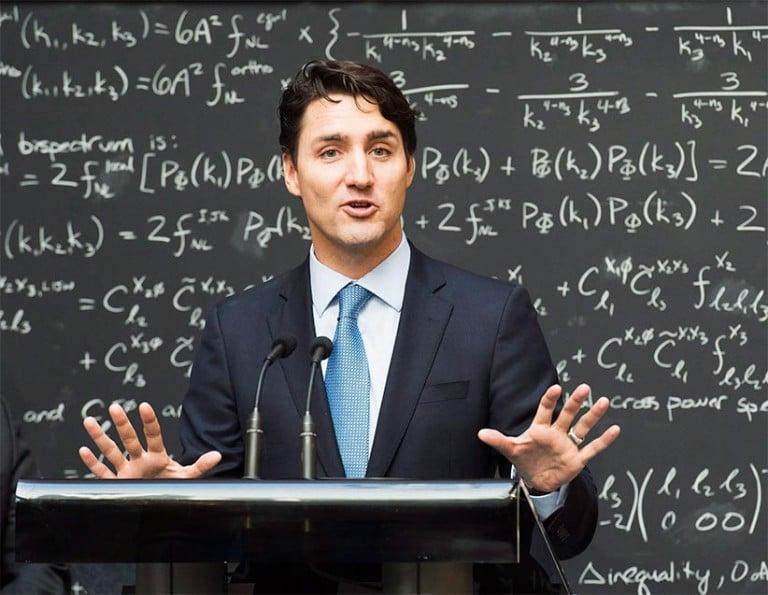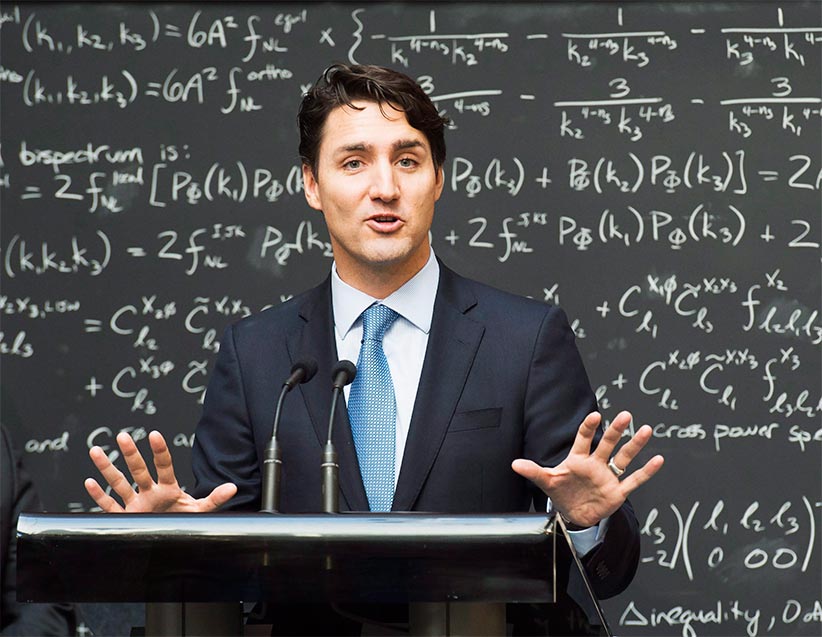Justin Trudeau’s quantum leap
Before Trudeau surprised reporters by explaining the basics of quantum computing, he stunned physicists in Waterloo with his understanding of their field

Justin Trudeau
Share

Raymond Laflamme knows the drill when politicians visit the Perimeter Institute. A photo op here, a few handshakes there and a tour with “really basic, basic, basic facts” about the field of quantum mechanics.
But when the self-described “geek” Justin Trudeau showed up for a funding announcement on Friday, the co-founder and director of the Institute for Quantum Computing at the University of Waterloo wasn’t met with simple nods of the Prime Minister pretending to understand. Trudeau immediately started talking about things being waves and particles at the same time, like cats being dead and alive at the same time. It wasn’t just nonsense—Trudeau was referencing the famous thought experiment of the late legendary physicist Erwin Schrödinger.
“I don’t know where he learned all that stuff, but we were all surprised,” Laflamme says. Soon afterwards, as Trudeau met with one student talking about superconductivity, the Prime Minister asked her, “Why don’t we have high-temperature superconducting systems?” something Laflamme describes as the institute’s “Holy Grail” quest.
“I was flabbergasted,” Laflamme says. “I don’t know how he does in other subjects, but in quantum physics, he knows the basic pieces and the important questions.”
When the tour was over and a media Q&A ensued, a journalist jokingly asked the Prime Minister to explain quantum computing, before asking a more serious question about ISIL. Trudeau jumped at the opportunity to answer the quantum question first.
“Normal computers work, either there’s power going through a wire or not. It’s 1 or a 0. They’re binary systems,” Trudeau explained. “A quantum state can be much more complex than that because, as we know, things can be both particle and wave at the same time, and the uncertainty around quantum states allows us to encode more information into a much smaller computer.”
And he’s right, an impressed Laflamme said when asked to fact-check Trudeau’s words. But as he tells every Prime Minister he meets: “Quantum physics is easy,” Laflamme says. “Running a country, that’s complex.”